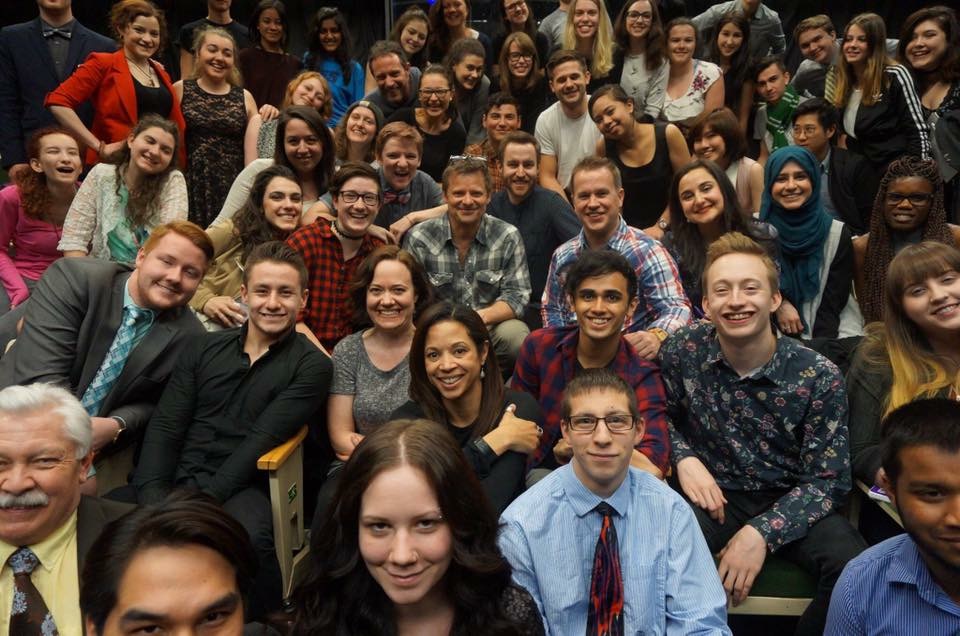Michael Coleman on the Benefits of Acting School

For the last 10+ years, award winning Canadian actor Michael Coleman has worked tirelessly to create an innovative acting school in Vancouver. Its success mirrored Coleman’s acting career, with constant roles on hit tv shows over the last decade, including Once Upon a Time, Smallville, and Fringe, not to mention his work as a screenwriter and director. Now, Coleman is designing a new postsecondary acting school with groundbreaking innovative courses for actors looking to take their careers to the next level. If anyone knows acting school, it’s Michael Coleman. The following are the five benefits of acting school, as outlined by Michael Coleman himself:
1. Learn From the Best
Acting is a competitive industry, with thousands of individuals trying to make it big and get noticed (if not more). It’s not that there isn’t enough room for everyone, it’s just that many have not mastered what makes them unique.
At acting school, you get to interact with experienced, successful actors and learn from their careers. Whether their your teachers, have helped design your classes, or are special guests, you will learn from the best. Not only will these experienced teachers help you discover what makes you unique, meeting your idols will also serve as motivation and inspiration. Michael Coleman recalls when he first met Robin Williams at a stand up show in Vancouver, BC. Robin’s words of wisdom and down to earth demeanor was a great motivating factor in Coleman pursuing his international acting career. These moments are what will inspire you to keep working hard when the goings get tough.
2. Network and Bond
Acting school introduces you to people who are passionate, talented, and driven, just like you! Of course acting school is great for the education and experience, but it’s also important for networking, a skill which you must master for a successful career. It is highly likely that you will graduate and go on to act alongside your classmates, or even get an acting gig thanks to these connections. Thus, it is extremely important to connect, and stay connected, with as many of your classmates as possible. But it’s not just about networking with fellow classmates. Teachers and other supervisors within the school are great for providing employment resources and opportunities. This is why Michael Coleman’s new school is focusing on community to ensure every student has a network that helps them achieve a successful career in the arts.
3. Challenge Yourself
Acting school forces you to step out of your comfort zone and try new acting methods, projects, and environments. “We will never improve our skills if we cannot challenge ourselves.” says Michael Coleman, who began his career writing and performing comedy routines, then pursued acting in theatre and on the big screen. Now, Coleman acts, writes, directs, and does voice over work. Talk about challenging yourself! It’s great to be able to say that you have done something before, or are at least willing to try it. You never know what acting through a different medium will do for your career and skill set if you don’t try.
4. Opportunities and Exposure
Acting school immerses you in an environment where everyone is striving to develop and showcase their skills. Although this competition can be overwhelming, there are plenty of opportunities to join projects on and off campus. It’s best to grasp at any opportunity for skill building and exposure that comes your way, as it will do a great job of preparing you for both the success and failure you will face upon graduation. As Michael Coleman says, “failing is hard but we learn more from failure than we do from our success.”
5. Industry Knowledge
An acting career requires much more than just talent. It requires an understanding of everything that goes behind a great television show, movie, theatre production, etc. Lighting techniques, set design, costumes, hair, makeup, and editing are just a few of the crucial steps for creating a successful production. You don’t need to master all of these components, but it’s a good idea to at least have exposure to them.